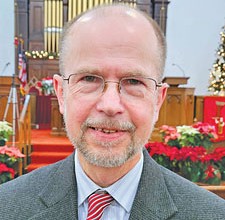Not so cute Noah’s Ark
Noah’s Ark is a story we love to tell our children. We decorate nurseries and bedrooms with pictures of animals marching two-by-two into the giant boat. Sometimes there is even a rainbow behind it. It seems so cute. But when you think about it the story is heartbreaking and hardly appropriate for children. It is a story of annihilation and destruction. After the ark’s door closes everyone and everything outside drowns in the flood. The state of the world was such that it deserved this punishment. Only Noah and his family were found good enough to be spared. The Bible calls Noah a “righteous man, blameless in his generation” (Genesis 6:9), but the rest were completely corrupt.
This is not the only story in the Bible where people behave so badly that God decides to punish them by annihilation. Jewish scholars have noticed a long time ago that Abraham and Moses faced a similar crisis. But while Noah and his family closed the door of the ark while everyone else was drowning Abraham and Moses spoke up.
In Genesis 18 the Lord God is so upset about the sinful cities of Sodom and Gomorrah that he decides to destroy them. When God shares his plan with Abraham he pleads with the Lord. Will you kill the righteous with the wicked? Will you really kill them even if there are only 50 righteous people? 45? 40? 30? 20? 10? And God agreed: If there were 10 righteous people, God would not destroy the city (Genesis 18:22-33). Unfortunately for Sodom, there were not even 10. God destroyed the cities of Sodom and Gomorrah, but not for Abraham’s lack of trying to stop it.
When faced with the destruction of the Israelites, Moses, too, argued with God (Exodus 32). While Moses was receiving the commandments on Mount Sinai the people got impatient, afraid that God and Moses left them alone. They formed for themselves a golden calf, sacrificing burnt offerings to the idol they worshiped it. God threatened to destroy them in anger for their lack of faith, but Moses pushed back. He didn’t argue that the people were innocent—their betrayal of God was clear. Instead, Moses pointed to God’s promises to the people. He appealed to God’s trustworthiness and grace. And the Lord spared them.
When presented with the people’s coming destruction, Noah was silent. He built his ark and put up with the nonsense of those around him who thought he was being foolish. Then he packed up his family, inventoried the animals, and marched in the ark while everyone drowned in the flood. Did he do all that he could? As the Zohar, a 13th-century Jewish writing notes, “Noah did not plea for mercy on behalf of the world, and they all perished.”
I find this very challenging. What does this mean for us? Perhaps this:
When Jesus entered the world, he tells us that God loved the world so much that he gave his one and only Son, so that whoever believes in him shall not perish but have eternal life. For God did not send his Son into the world to condemn the world, but to save the world through him (John 3:16-17). He teaches his disciples that God is like a shepherd looking for the lost sheep. Like a father who runs to meet and forgive the prodigal son. In the Beatitudes Jesus teaches his followers that God blesses and pays special attention to the poor, those who mourn, the meek, and those persecuted. To God, not one soul is lost.
Jesus reminds us, that God notices and cares. And Jesus speaks up against the world that does not notice and does not care. Jesus speaks against the world where it is so easy to turn our eyes away from suffering, where it is so easy to find blame somewhere else. Instead, he looks after the sinners and the lost.
And so, I think that the old scholars were right. Noah should have pleaded with God. He may have been righteous but did not know God well. He did not trust God’s grace. But Jesus teaches us how to know God. He teaches us that God notices the lost and cares for the sinners. God’s mission is to save the world. God is always ready to forgive. So, it is Jesus who is pleading, not with God, but with the world and with us, those who try to follow him.
–––––
Rev. Tomas Pistora is pastor at Trinity United Presbyterian Church, Kenton.




